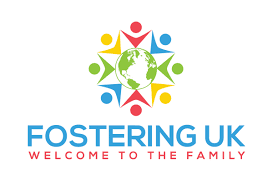Top 10 Things Every Child Needs
UK Fostering emphasises the value of offering foster children specialised care tailored to their individual requirements. It's critical to comprehend children's top 10 needs if you want to make sure that every child in your care feels safe, supported, and loved. Foster parents may give the children in their care the greatest care possible by having the right training for foster carers.
Start with a straightforward one. Our well-being is fundamentally dependent on receiving affection. As children, love serves as a foundation for our development of self-worth. Being adored implies that we are valuable. Love is cosy and encompassing. A child's development can be severely harmed by the lack of love. In large measure, how we are loved determines how we will treat others.
Patience
How often have I informed you..?" You've probably said this "a million times" if you're a parent. (and probably that one too). You can push your patience to the maximum with kids. We must make mistakes in order to develop and learn. Children develop at their own rate, they will make mistakes, and occasionally they will irritate you just for amusement. Although patience is a virtue, it is essential in parenthood.
Trust
Trust is a mutual relationship. The parent must be trusted by a kid, as this is their greatest need in terms of the trust. They must have faith in them to care for them, keep them safe, nourish them, and treat them fairly. Parenting inconsistently can make people very anxious. Many kids who enter foster care have been taught not to trust adults because they have come to understand that doing so could place them in danger.
Encouragement
Encouragement enables us to attempt new things when our surroundings are unfamiliar and possibly frightening. When things are difficult, encouragement in all its forms helps us persevere and accomplish things we might not have otherwise attempted. Similar to affection, encouragement aids a child's development of confidence and self-worth.
Security
Foster parents are essential in creating a safe and stable home for the children they are caring for. This entails maintaining children's physical safety from harm and offering emotional support to promote children's feelings of security and self-assurance. As a result of their traumatising experiences, many children who are placed in foster care may battle with anxiety and feelings of vulnerability. Foster carer support children with a sense of security and stability by fostering a nurturing and encouraging atmosphere that promotes resilience in young people.
Laughter
Let's not fool ourselves: laughing is hilarious and laughing is funny. The world is inherently humorous when you're young. (although I still find it funny now). When we get older, doesn't life become so serious? Fun and laughter should be abundant in childhood. It can be a fantastic way to strengthen family ties and generate happy hormones. Just remember that while experiencing wind is amusing to a toddler and is still amusing to you as an adult, so let it out (the laughter, that is)!
Boundaries
For any youngster, boundaries are really crucial. When there are limits, kids feel secure. A youngster who has limits in place is less stressed, knows what to expect, and has more opportunities to act honourably, get compliments, and generally have their needs addressed. The majority of the above and below are likely already provided to a youngster who obtains good boundaries.
Praise
A child's self-esteem and willingness to attempt new activities are fundamentally influenced by praise. A youngster is implicitly encouraged by praise to work harder, try harder, and make a new impression. Receiving praise is satisfying, and a foster child who has experienced it will probably want to receive it again. Even if your child shows you a creation that more closely resembles a paintball battle, tell them you enjoy it; this will probably help them feel better.
Education
Different modes of education exist. The obvious one is having access to formal education, but learning happens constantly and everywhere. The mirroring of parental behaviours by children plays a significant role in their social development. Aspects of learning include excursions, vacations, excursions, and conversations. A child will always be learning; the challenge for parents, of course, is ensuring that their children are learning positive lessons rather than harmful ones.
Resilience
Resilience is the capacity to recover from setbacks, difficulties, or challenges. Children must have resilience in order to attempt, fail, and try again. For children in foster care, a resilient child is one that manages to endure and grow up successfully despite having had a difficult upbringing. Children develop resilience when they have positive experiences with the nine things listed above.




Comments
Post a Comment